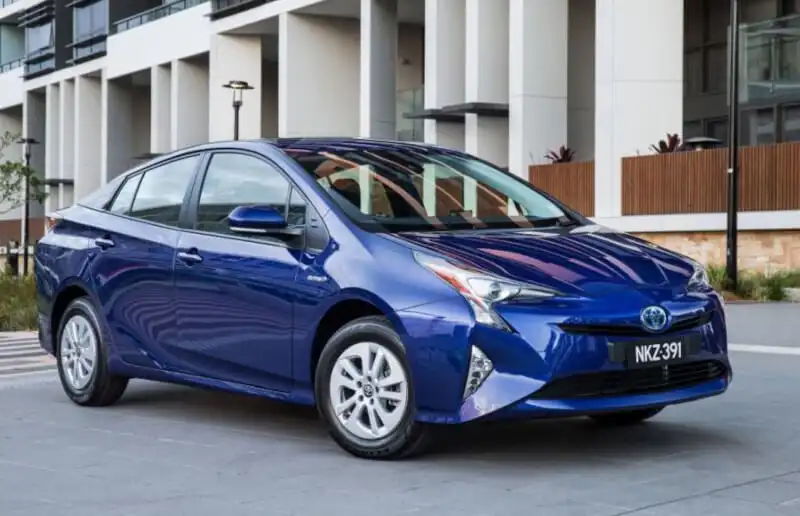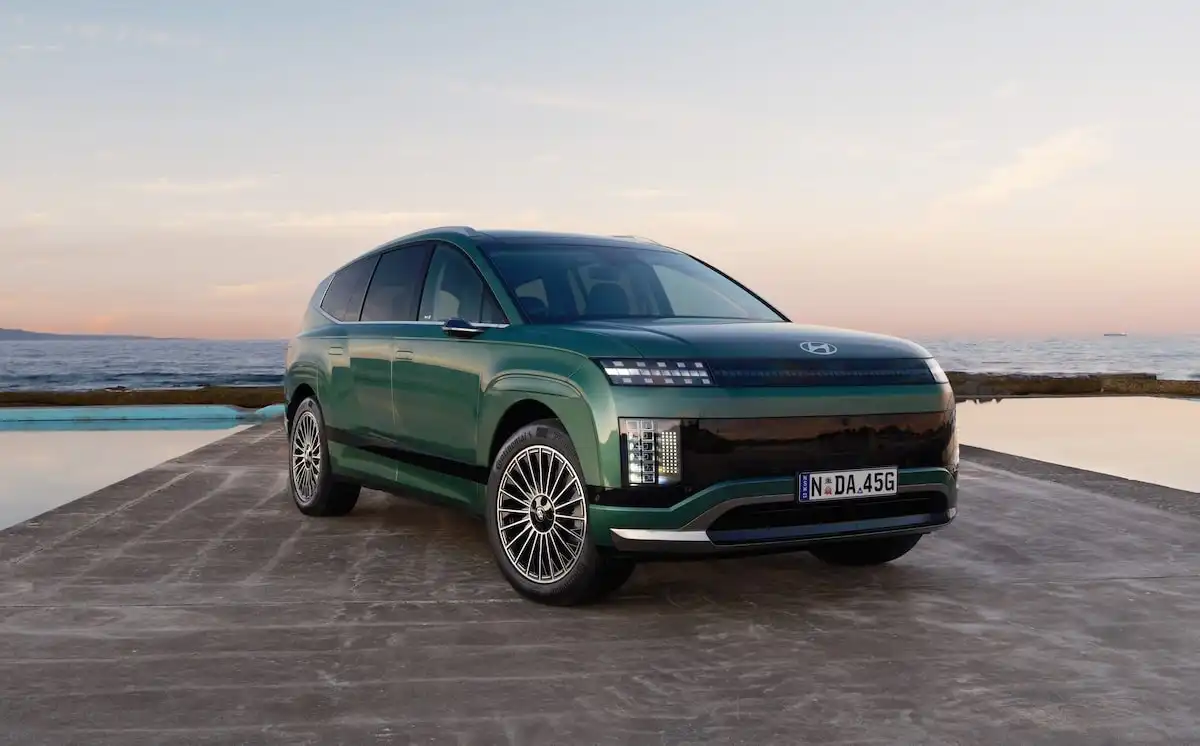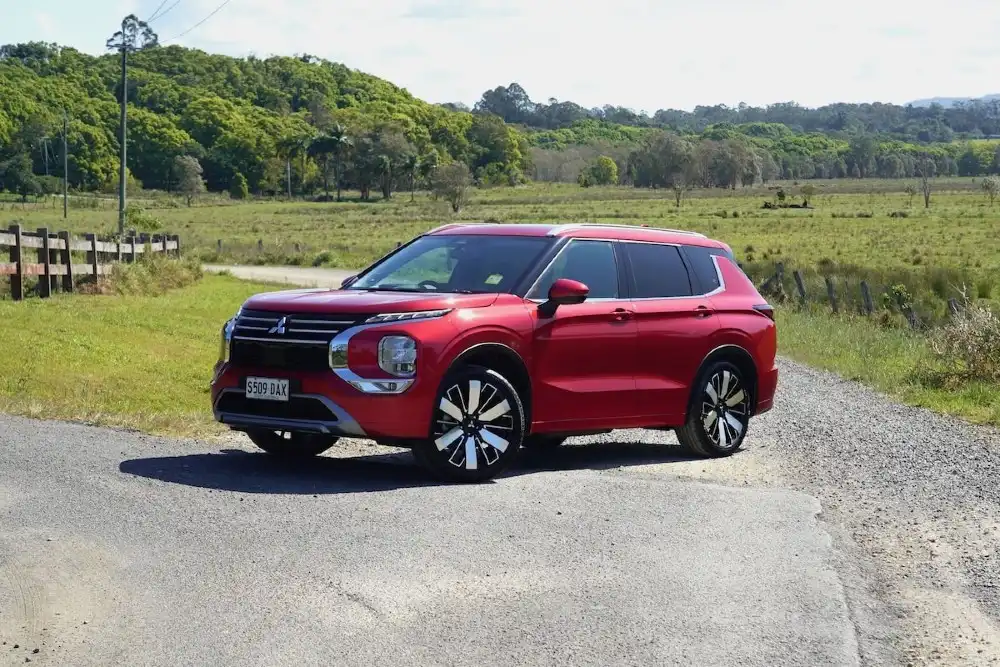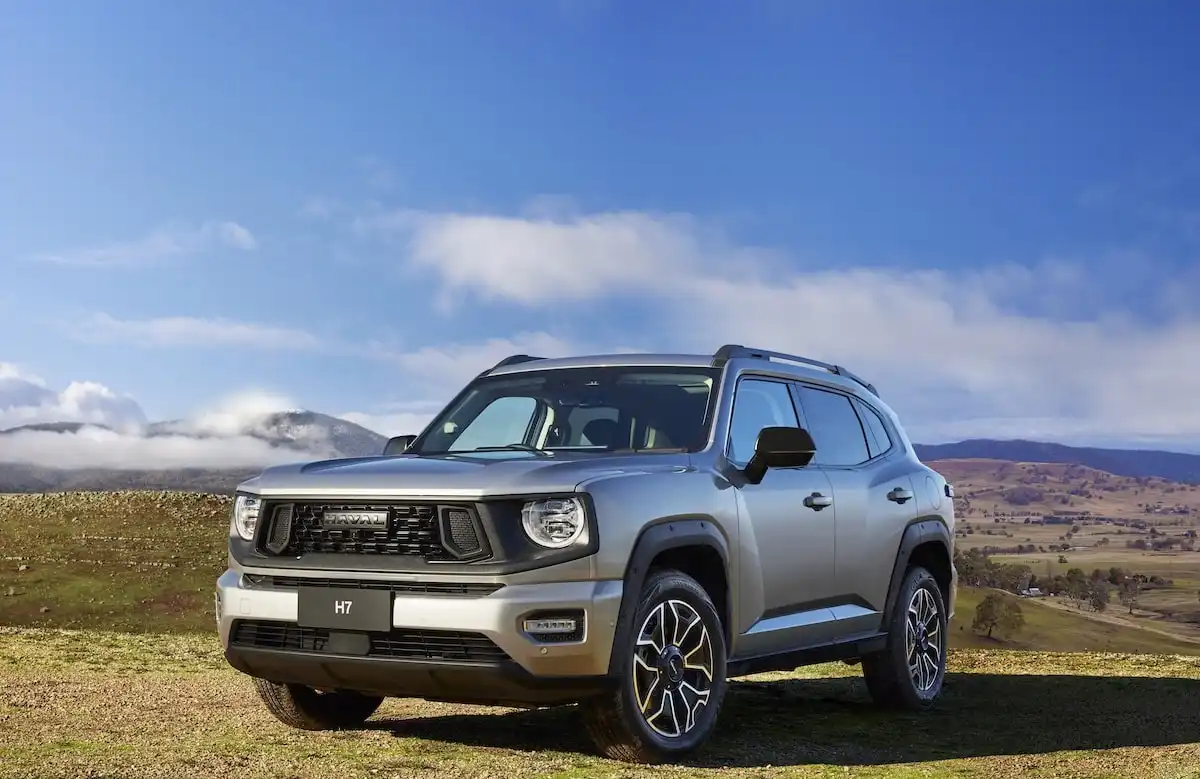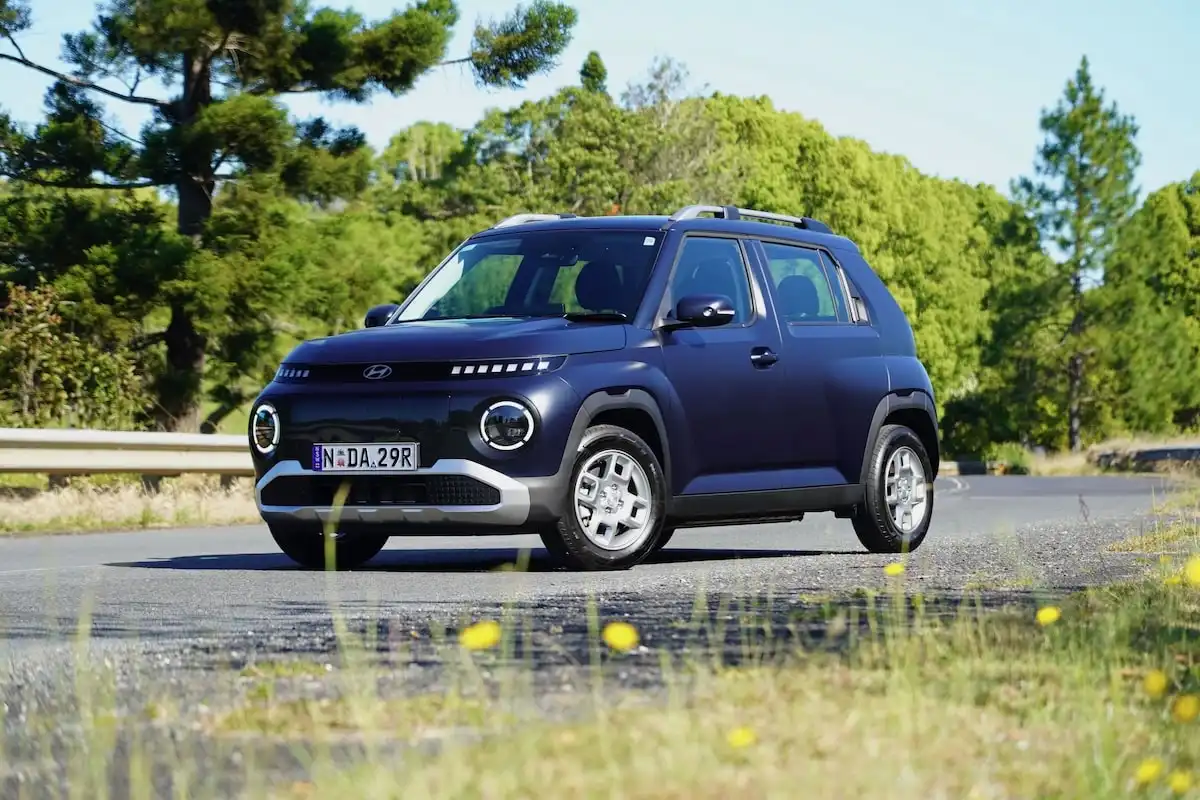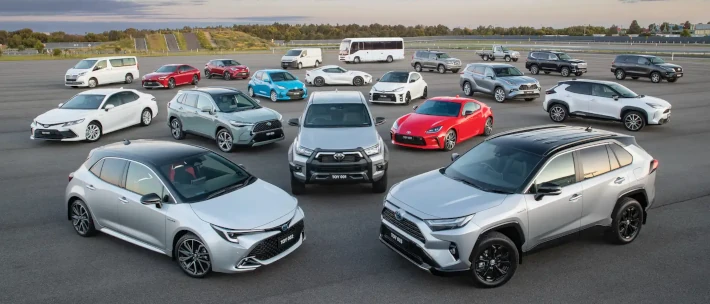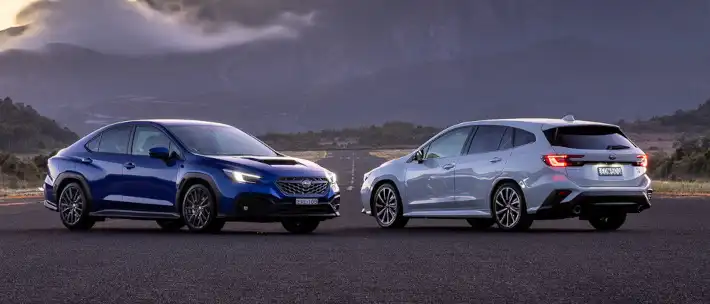Upon its release, the Prius copped its fair share of criticism, predominantly in terms of its styling and underwhelming engine performance that led consumers to believe that the future was going to be slow. Since then, however, Toyota has been working away at making the Prius an exciting futuristic family sedan that is not only capable of work commutes and school runs, it’s also more exciting than you’ve probably been led to believe.
Today, we’re going to have a look at the two variants within the Prius lineup, and see how much value, equipment, safety and economy is on offer in the latest generation. The company is intent on showing that they have created a familiar-feeling, yet futuristic vehicle that is sure to impress families, but how well has Toyota hit this brief? Let’s find out.
Starting Price: $45,825
OnlineAuto Savings: Enquire now
Toyota Prius - I-TECH (HYBRID) Specifications
| Model Date | 2021 |
| Make | TOYOTA |
| Model | PRIUS |
| Series | ZVW50R |
| Variant | I-TECH (HYBRID) |
| Body | 5D HATCHBACK |
| Fuel type | UNLEADED PETROL/ELECTRIC |
| Transmission | CONTINUOUS VARIABLE |
| Drive | FWD |
| Engine | MPFI |
| Engine capacity | 1798 |
| Engine configuration | VARIABLE DOUBLE OVERHEAD CAM / 16 valves |
| Engine RPM | 5200 / 3600 |
| Cylinders | 4 |
| Torque | 142 |
| KW | 72 |
| Fuel tank size | 43.0 |
| Fuel usage specs | 3.4 / 0.0 |
| CO2 | 80 |
| ANCAP security rating | 5 |
For more details and other variants, check Toyota Prius car page.
Need help narrowing down your choices?
Get in touch with one of our Car Buying Specialists today
Request a quoteHow Much Does It Cost?
The Toyota Prius range is available in two variants, which kicks off from $38,365 for the base model Prius Auto and stretches out to $45,825 for the range-topping Prius i-Tech Auto.
How Much Can OnlineAuto Save You?
Using OnlineAuto car broker services, you could save by sourcing one of our car specialists to help you find the best value model for you.
What Features Does the Toyota Prius Have?
The entry-level Toyota Prius comes riding on a set of 15-inch aerodynamic alloys, and receives auto-levelling Bi-LED headlights, as well as LED daytime running lamps and fog lights, automatic wipers, electronically-adjustable side mirrors, smart entry system, active cruise control, a reversing camera, climate control, head-up display, 7.0-inch infotainment system with Apple CarPlay and Android Auto, as well as satellite navigation and DAB+ radio, which is paired with a 10-speaker sound system from JBL and also receives wireless smartphone charging.
Opting for the flagship Prius i-Tech variant adds a larger set of 17-inch aero-efficient alloy wheels, as well as heated seats for the driver and front passenger, keyless entry and start as well as blind-spot monitoring and rear cross-traffic alerts for the active safety system.
Range Features:
-
15-inch alloys with aerodynamic design
-
7.0-inch infotainment system with DAB+, Sat-nav, Apple CarPlay & Android Auto
-
Bi-LED headlights with LED daytime running lamps
-
Active cruise control
-
Reversing camera
-
10 speaker JBL sound system
-
Wireless smartphone charging
-
Heads-up display
-
17-inch alloys (Prius i-Tech)
-
Heated front seats (Prius i-Tech)
-
Keyless entry and start (Prius i-Tech)
-
Rear cross-traffic alerts & blind-spot management (Prius i-Tech)
Toyota Prius Colours
| Glacier White | Frosted White |
| Silver Pearl | Feverish Red |
| Graphite | Eclipse Black |
| Blue Gem |
Is it Comfortable to Drive?
The Toyota Prius is an extremely relaxing and user-friendly car to drive, and does a great job in eliminating the unnecessary stresses of your commute. Toyota has done a great job in making the Prius feel like it’s from the future while maintaining all the familiar hallmarks of the vehicles it is known and loved for. The company has obviously spent a lot of time making the cabin a peaceful environment while reducing the noise from outside and vibrations through the chassis. This means that as you’re driving along, you’re often treated to pure silence.
Also impressive is the fact that, while you might not expect it, the Prius is actually surprisingly fun to drive, thanks mostly to the added electric power on offer in the hybrid drive system. The Prius’ hybrid system features a 1.8-litre petrol engine paired with an electric motor, and a nickel-hydride battery pack sitting under the rear seats. Power is thrown to the wheels via the electric motors, with the petrol engine acting as a little on-board generator, which massively reduces its fuel consumption. Charge can be eaten-up by slow speed driving and traffic jams, though, which is something to keep in mind. The downside to this system is that you can feel the added weight, however the Prius’ chassis and suspension does a great job in disguising the added weight.
Around town, the Prius is a compliant and extremely polite companion. The acceleration on offer is more than adequate for the average driver, although it doesn’t pack the same punch as a pure EVs that receive larger electric motors. In reality, though, that much power is very rarely needed, and the Prius proves fantastic around town, with a smooth CVT transmission and light steering rack that makes low speed turns and squeezing into tight car parks a simple task.
As a complete package, then, the Prius has been designed to an extremely high standard by Toyota to feel like a next-generation vehicle that is approachable for all drivers, treating them to a silent cabin and silky-smooth drive.
Is the Toyota Prius Practical and Spacious?
The front cabin in the Toyota Prius features an extremely comfortable and spacious cabin layout, due in part to the futuristic design and freedom to use a layout that doesn’t need to accommodate things a traditional petrol or diesel car has to squeeze between the driver and front passenger. Up front, you’ll find a swooping dash design that accommodates the infotainment system, with a wireless charging pad, set of cup holders and a large storage space between the driver and passenger for loose items. The large door bins can eat up a full sized drink bottle, while a number of special interior trim features remind you that you’re not sitting in an average Toyota. The ergonomics are perfect, the forward visibility is outstanding thanks to a huge windscreen without distractions, and the cockpit features a fully-adjustable driving position and steering wheel that allows you to get cosy in a set of comfortable seats.
In terms of the Prius serving as a family transporter, you’ll be glad to hear that there’s a heap of space in the rear of the cabin, and an extremely decent amount of space in the boot, too. Passengers in the second row are treated to a tonne of legroom, which can accommodate full-sized adults without a problem, although the headroom on offer is limited due to the sloping roofline. If you’re looking to squeeze in cargo, the entry-level Prius can swallow up 457-litres in the boot, while the i-Tech variant increases this to 502L by throwing out the space-saver spare tyre in favour of a repair kit. ISOFIX anchor points and top tether points are easily accessible, and the process of installing a child seat is a simple, straight-forward task.
As a potential family vehicle, the Prius performs exceptionally well when put under the stresses of a modern Australian family. Not only can it transport five people in comfort, it’s adaptable in terms of cargo storage in the boot and welcoming for families with young children.
Is it Safe?
The Toyota Prius has been awarded ANCAP’s maximum five-star safety rating, where it scored an overall 36.22 out of a potential 37 during ANCAP’s safety testing. As standard, the Prius is packaged with autonomous emergency braking with pedestrian and cyclist detection, lane departure warnings with steering assistance, active cruise control, a reversing camera, traffic sign recognition and seven airbags.
Stepping up to the range-topping i-Tech variant adds a blind-spot monitoring system as well as rear cross-traffic alerts.
Is the Toyota Prius Fuel Efficient?
Toyota is one of the biggest pioneers of hybrid drivetrains, which means that the latest-generation Prius is a game-changer when it comes to economy figures. The official combined cycle figure stands at 3.4L per 100km, which we were able to match in real-world driving situations. Typically, a lot of fuel is consumed while taking off from a standstill at traffic lights or intersections. In the Prius, this acceleration is taken care of by electric power, while the petrol engine generates more electricity for you to use on the road. The Prius provides an exceptionally economical option for those looking for an efficient family commuter.
Our Verdict: Is the Toyota Prius Worth it?
While the first few generations of the Toyota Prius were met with a lot of skepticism within the industry, very few would challenge the statement that in its latest generation, the Toyota Prius is an outstanding family sedan that has spurred other manufacturers to jump into the world of hybrids and electric vehicles. The entry-level Prius comes extremely well-equipped for what most families will ever need, with Toyota not holding back on key features in order to get buyers to step up into the i-Tech.
With all this in mind, we believe that the Toyota Prius is a hugely influential car that, in its latest generation, has finally found its groove and is well-deserving of a spot on your shortlist. On that note, if you’re in the market for a new car, you can get a free quote and see how much OnlineAuto can save you on your next car, or call us on 1300 719 925
Five Specs You Need to Know
- Five-year, unlimited KM warranty
- 3.4L per 100km economy
- Electricity powers the wheels, while petrol engine acts as an on-board generator
- Five star ANCAP safety rating (2016)
- 457L boot in entry-level Prius; 502L in flagship i-Tech variant
Pros
- Outstanding fuel economy
- Smooth, comfortable ride characteristics
- Toyota reliability
- Entry-level model comes feature-packed
Cons
- Blind-spot monitoring and rear cross-traffic alerts reserved for i-Tech variant
- Polarising styling
- Driver blind-spots in rear three-quarter view
OnlineAuto Rating: 9/10
Toyota Prius Competition
Toyota Prius |
VS |
Hyundai i30 |
| Toyota Corolla | ||
| Hyundai Nexo | ||
| Lexus CT 200h. HYBRID | ||
| Audi A1 | ||
| Hyundai Ioniq |
